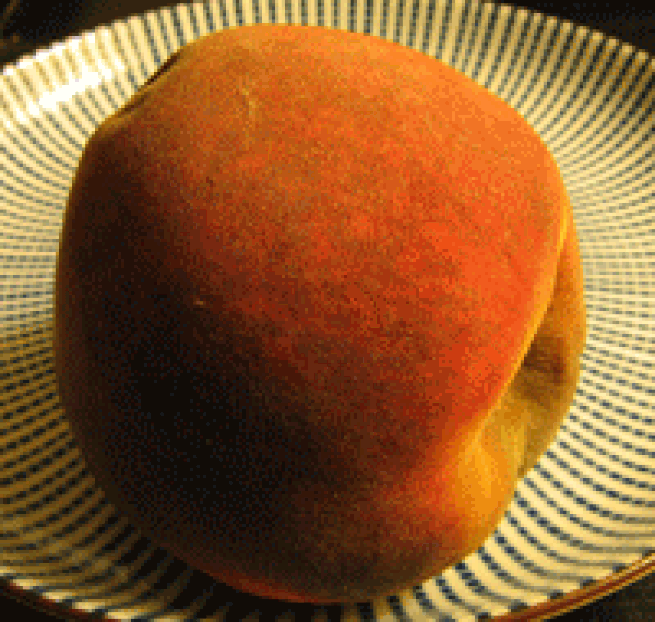
-
Mold
A mold (US) or mould (UK / NZ / AU / ZA / IN / CA / IE) is a fungus that grows in the form of multicellular filaments called hyphae. In contrast, fungi that can adopt a single-celled growth habit are called yeasts.
Molds are a large and taxonomically diverse number of fungal species in which the growth of hyphae results in discoloration and a fuzzy appearance, especially on food. The network of these tubular branching hyphae, called a mycelium, is considered a single organism. The hyphae are generally transparent, so the mycelium appears like very fine, fluffy white threads over the surface. Cross-walls (septa) may delimit connected compartments along the hyphae, each containing one or multiple, genetically identical nuclei. The dusty texture of many molds is caused by profuse production of asexual spores (conidia) formed by differentiation at the ends of hyphae. The mode of formation and shape of these spores is traditionally used to classify molds. Many of these spores are colored, making the fungus much more obvious to the human eye at this stage in its life-cycle.
Molds are considered to be microbes and do not form a specific taxonomic or phylogenetic grouping, but can be found in the divisions Zygomycota and Ascomycota. In the past, most molds were classified within the Deuteromycota.Molds cause biodegradation of natural materials, which can be unwanted when it becomes food spoilage or damage to property. They also play important roles in biotechnology and food science in the production of various foods, beverages, antibiotics, pharmaceuticals and enzymes. Some diseases of animals and humans can be caused by certain molds: disease may result from allergic sensitivity to mold spores, from growth of pathogenic molds within the body, or from the effects of ingested or inhaled toxic compounds (mycotoxins) produced by molds.
-
Mold (noun)
A hollow form or matrix for shaping a fluid or plastic substance.
-
Mold (noun)
A frame or model around or on which something is formed or shaped.
-
Mold (noun)
Something that is made in or shaped on a mold.
-
Mold (noun)
The shape or pattern of a mold.
-
Mold (noun)
General shape or form.
“the oval mold of her face”
-
Mold (noun)
Distinctive character or type.
“a leader in the mold of her predecessors”
-
Mold (noun)
A fixed or restrictive pattern or form.
“His method of scientific investigation broke the mold and led to a new discovery.”
-
Mold (noun)
A group of moldings.
“the arch mold of a porch or doorway;”
“the pier mold of a Gothic pier, meaning the whole profile, section, or combination of parts”
-
Mold (noun)
A fontanelle.
-
Mold (noun)
A natural substance in the form of a woolly or furry growth of tiny fungi that appears when organic material lies for a long time exposed to (usually warm and moist) air.
-
Mold (noun)
Loose friable soil, rich in humus and fit for planting.
-
Mold (noun)
Earth, ground.
-
Mold (verb)
To shape in or on a mold.
-
Mold (verb)
To form into a particular shape; to give shape to.
-
Mold (verb)
To guide or determine the growth or development of; influence
-
Mold (verb)
To fit closely by following the contours of.
-
Mold (verb)
To make a mold of or from (molten metal, for example) before casting.
-
Mold (verb)
To ornament with moldings.
-
Mold (verb)
To be shaped in or as if in a mold.
“These shoes gradually molded to my feet.”
-
Mold (verb)
To cause to become moldy; to cause mold to grow upon.
-
Mold (verb)
To become moldy; to be covered or filled, in whole or in part, with a mold.
-
Mold (verb)
To cover with mold or soil.
-
Mould (noun)
alternative spelling of mold
-
Mould (noun)
alternative spelling of mold
-
Mould (verb)
alternative spelling of mold
-
Mould (verb)
alternative spelling of mold
-
Mold (noun)
a town in north-eastern Wales, administrative centre of Flintshire; population 10,500 (est. 2009).
-
Mould (noun)
a hollow container used to give shape to molten or hot liquid material when it cools and hardens
“a jelly mould”
“the smith would pour the molten metal into the shaped mould”
-
Mould (noun)
a pudding or savoury mousse made in a mould
“a lobster mould with a sauce of carrots and port”
-
Mould (noun)
a distinctive and typical style, form, or character
“he’s a superb striker in the same mould as Gary Lineker”
“he planned to conquer the world as a roving reporter in the mould of his hero”
-
Mould (noun)
form or shape, especially the features or physique of a person or the build of an animal
“he was manly in size, mould, and bearing”
-
Mould (noun)
a frame or template for producing mouldings
“all the moulds, masters or originals, had been kept for reference”
-
Mould (noun)
a furry growth of minute fungi occurring typically in moist warm conditions, especially on food or other organic matter
“moist food becomes covered with moulds”
“mould may flourish unhindered”
-
Mould (noun)
soft loose earth
“the ground was soft and damp, with old leaves thick in the mould”
-
Mould (noun)
the upper soil of cultivated land, especially when rich in organic matter
“gravel and sand over clay, topped by fine vegetable mould”
-
Mould (verb)
form (an object) out of malleable material
“mould the figure from white fondant”
-
Mould (verb)
give a shape to (malleable material)
“take the marzipan and mould it into a cone shape”
-
Mould (verb)
influence the formation or development of
“the professionals who were helping to mould US policy”
-
Mould (verb)
(of a column, ceiling, or other part of a building) having a decorative moulding
“a corridor with a moulded cornice”
